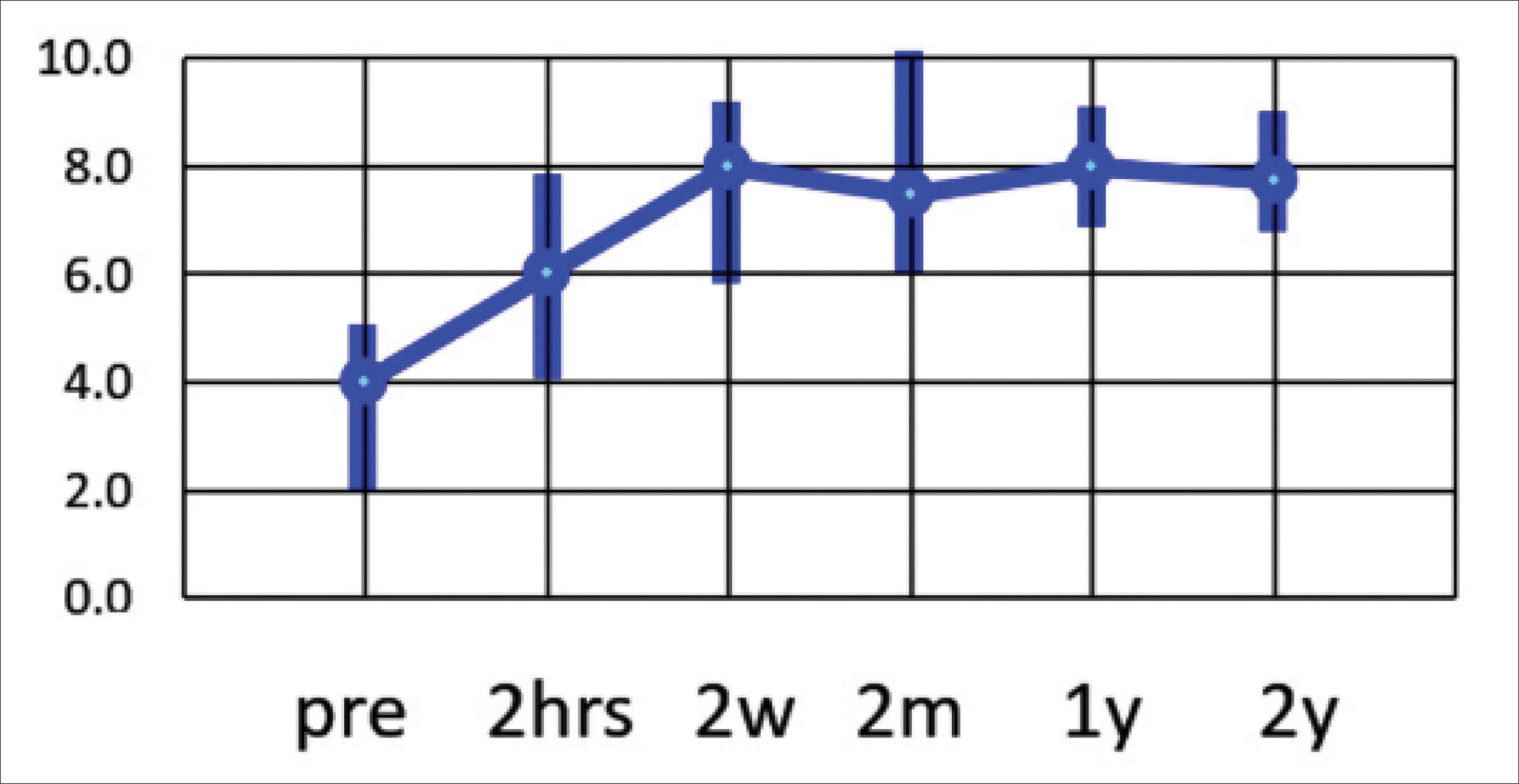To begin with, the BalanceBelt has undergone extensive clinical validation. In particular, these studies took place under the guidance of Prof. Dr Herman Kingma at Maastricht University in the Netherlands.
Peer-reviewed research
Kingma, H., Felipe, L., Gerards, MC. et al. “Vibrotactile feedback improves balance and mobility in patients with severe bilateral vestibular loss“. Journal of Neurology 266, 19–26 (2019).
In this study, 39 patients with severe Bilateral Vestibular Loss (BVL) tested the BalanceBelt for 2 hours in the hospital. Of these 39 patients, 31 experienced a positive initial effect and subsequently tested the BalanceBelt for 1 month in daily life:

Kingma, Herman & Hougaard, Dan & Berg, Raymond, “Subconscious vibrotactile stimulation improves mobility and balance in patients with bilateral vestibulopathy: adherence over 2 years.” Frontiers in Neurology, (2024).
This study showed that subconscious vibrotactile stimulation improves self-reported balance and mobility in a subgroup of motivated bilateral vestibulopathy patients for whom vestibular rehabilitation did not provide sufficient results.
In addition, researchers observed particularly high long-term adherence among patients who improved by two or more points on the Balance and Mobility Score after two weeks of daily use.

Figure 1: Median and range (n=65) of the Balance and Mobility Score (0 –10 on the y-axis) over time: pre = before starting to wear the belt; 2hrs= two hours in the hospital; 2w = after two weeks; 2m = after two months; 1y = after one year; 2y = after two years of wearing the belt daily. Of the 89 patients who initially tried the belt, 65 continued to wear it daily after two years.
BalanceBelt is participating in several international studies across different markets. Clinical results will be shared on our website once they are published.
Publications
Protheses for patients with severe bilateral vestibular loss.
by Herman Kingma, published in the ENT & Audiology News in March/April 2025.
It all began in 2003, when one desperate patient inspired the search for better treatments for severe bilateral vestibular loss. From that starting point, researchers developed two groundbreaking solutions: the BalanceBelt and the Vestibular Implant.
The BalanceBelt, in particular, offers a non-invasive option that has shown lasting benefits. Patients report better balance, improved mobility, and a higher quality of life. Even after two years of daily use, most patients continue to wear it, confirming its long-term value.
Read on to discover the story behind the BalanceBelt.
